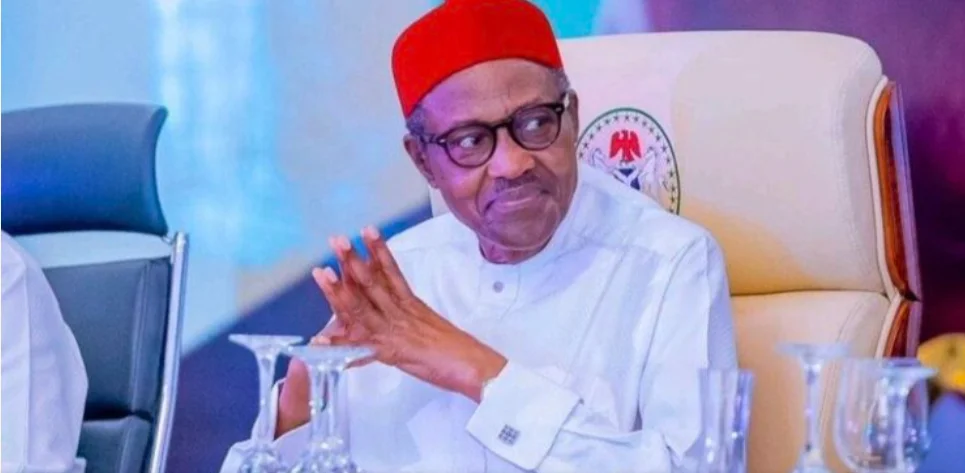Key Policies That Shaped Nigeria’s Tech Industry Under Buhari’s 8-Year Rule
Former President Muhammadu Buhari’s passing has prompted reflection on his legacy, including his complex impact on Nigeria’s tech sector. Between 2015 and 2023, Buhari’s administration introduced bold digital economy policies alongside regulatory moves that sparked debate.
From pioneering broadband strategies to controversial bans, here are the key policies that shaped Nigeria’s technology industry under Buhari’s leadership.
1. National Digital Economy Policy: Broadband, Data & Digital Growth
Buhari’s government launched:
- National Digital Economy Policy and Strategy (NDEPS) 2020–2030
- National Broadband Plan (NBP) 2020–2025
Key Targets:
- 70% broadband penetration
- 25 Mbps download speed in urban areas
- 10 Mbps in rural zones
By 2023, Mobile broadband coverage increased from 6% in 2015 to 46%.
As of May 2025, Nigeria reached only 48.81% broadband penetration, falling short of its 70% target.
2. Twitter Ban (June 2021–January 2022)
In a move that shocked global observers, Buhari’s government:
- Suspended Twitter after it deleted a controversial tweet by the president.
- Maintained the ban for 7 months despite economic and social backlash.
Economic Impact:
- LCCI estimated $26.1 billion in economic losses.
- SMEs, digital creators, and political discourse were significantly disrupted.
3. Cryptocurrency Ban (February 2021–December 2023)
The Central Bank of Nigeria (CBN):
- Prohibited banks from processing cryptocurrency transactions.
- Forced crypto trading onto peer-to-peer platforms.
Despite the ban:
- Nigeria recorded $59 billion in crypto trading from July 2023 to June 2024—nearly 50% of Sub-Saharan Africa’s total.
The ban was reversed in December 2023, highlighting the limits of strict regulation.
4. NIN-SIM Linkage Policy
Launched in December 2020, the NIN-SIM linkage mandate aimed to:
- Link all SIM cards to National Identity Numbers (NINs).
- Reduce fraud and insecurity.
Impact:
- Over 60 million SIM cards were disconnected by September 2024.
- Total active lines dropped from 219.6 million (March 2024) to 154.6 million.
However, despite full implementation, national security concerns persist, raising questions about its effectiveness.
5. Nigeria Becomes Africa’s First CBDC Pioneer: eNaira Launch
In October 2021, Buhari unveiled eNaira—Africa’s first central bank digital currency.
Goals:
- Increase financial inclusion.
- Modernise payment systems.
- Counter private cryptocurrencies.
Challenges:
- Low adoption rates.
- App performance issues.
- Merchant reluctance.
While innovative, eNaira remains underutilised compared to its potential.
6. Nigeria Startup Act (October 2022)
One of Buhari’s final tech policies was signing the Nigeria Startup Act, offering:
- Tax breaks for startups.
- Credit access and regulatory clarity.
- Establishment of the National Council for Digital Innovation and Entrepreneurship.
Implementation began under President Bola Tinubu, with NITDA currently issuing Startup Labels.
7. Indigenous Tech Procurement & Data Governance
Buhari’s administration also promoted local content through:
- Executive Order 5 (2018): Prioritised Nigerian tech vendors for government contracts.
- National Data Protection Bureau Creation: Focused on data sovereignty and privacy.
- AI and Robotics Centre Establishment: Encouraged emerging tech development.
Bottom Line: Buhari’s Digital Legacy—A Mixed Inheritance
President Buhari’s 8-year rule shaped Nigeria’s digital economy with both progressive initiatives and controversial policies.
- Strengths:
- Broadband expansion
- First CBDC in Africa
- Startup ecosystem development
- Criticisms:
- Twitter and crypto bans
- Execution gaps in key initiatives
As President Tinubu now carries forward Buhari’s digital legacy, lessons from past successes and missteps could accelerate Nigeria’s journey toward a globally competitive tech ecosystem.












